Community members share their motivation for coming forward for testing. For some, anxiety not knowing their status and wanting to protect their family encouraged them to come forward for testing.
Being a new disease means the 2019 Coronavirus disease (COVID-19) presents a lot of uncertainties as scientists, health workers and agencies at the frontline try to respond and learn simultaneously. While the uncertainties have caused panic and even stigma, it is always best to be guided by science. Public health institutions like the Nigeria Centre for Disease Control (NCDC) and the World Health Organisation (WHO) have been co-ordinating the response, issuing guidelines and defining the testing criteria for COVID-19.
However, these uncertainties and panic didn’t stop some residents of the Federal Capital Territory (FCT), like Abdulrasheed Ahmad Ajao, from taking advantage of community testing for COVID-19.
Ajao said he came out with his whole family to get tested because it’s not just about being patriotic, but for their own good. He wouldn’t want a situation where someone who has COVID-19 will be unknowingly transmit it to others. Ajao added that his decision to follow social distancing guidelines, as much as possible in his house and to come out for testing, was informed by the advice he received from the mosque he worshiped in, just before the lockdown.
As a response strategy to the COVID-19 outbreak in Nigeria, the Federal Ministry of Health through the NCDC commenced the scaling up of testing across the country. The strategy prioritises testing as a way to stop the spread of the virus by identifying, tracing and isolating positive cases. The active case finding in communities will also help quickly identify asymptomatic transmission (people who are infected with COVID-19, but show no symptoms while they are infectious to other people).
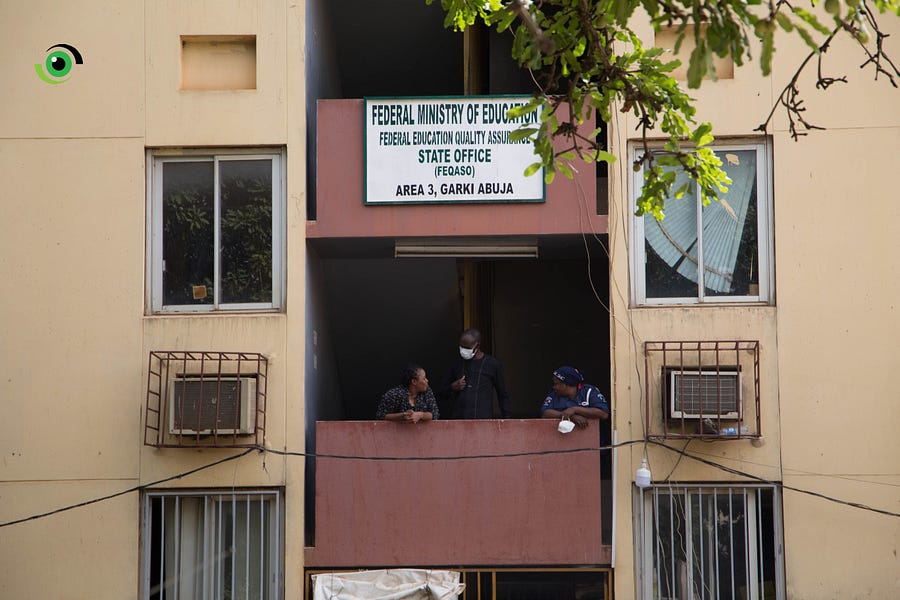
The Federal Capital Territory Administration’s (FCTA) Public Health department quickly keyed into NCDC’s national strategy for scaling up testing by starting testing in communities located in the Abuja Municipal Area Council (AMAC) where most of the initial positive cases were identified. Utako and Mabushi are two of the communities where community testing was carried out.
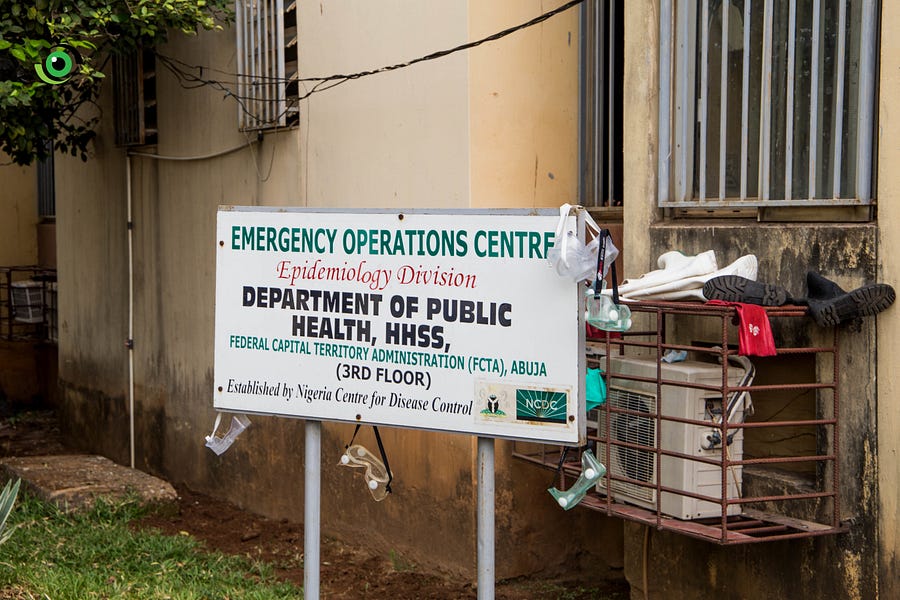
The public health department already had an Emergency Operations Centre (EOC) set up by the NCDC, and this helped to quickly activate the response in the FCT according to Dr Josephine Okechukwu, Director of Public Health, Health and Human Services Secretariat (HHSS) at the FCTA.
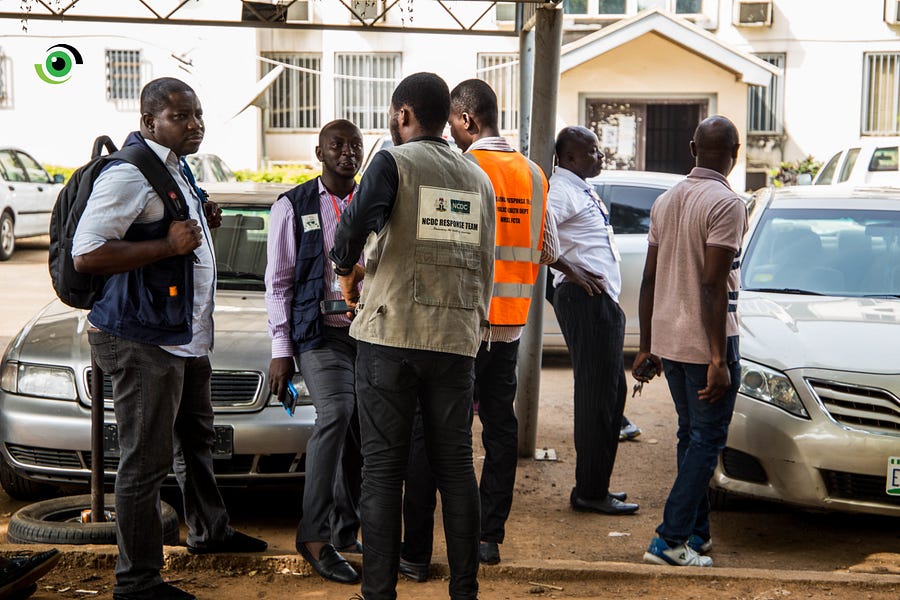
FCTA staff, supporting agencies like WHO, NCDC, African Field Epidemiology Network (AFENET) and volunteers are gathered at the FCTA’s office in Garki Area Abuja. They join their respective teams before setting out to different testing sites assigned to them for sample collection. The samples are sent to the NCDC public health reference laboratory in Gaduwa for testing.
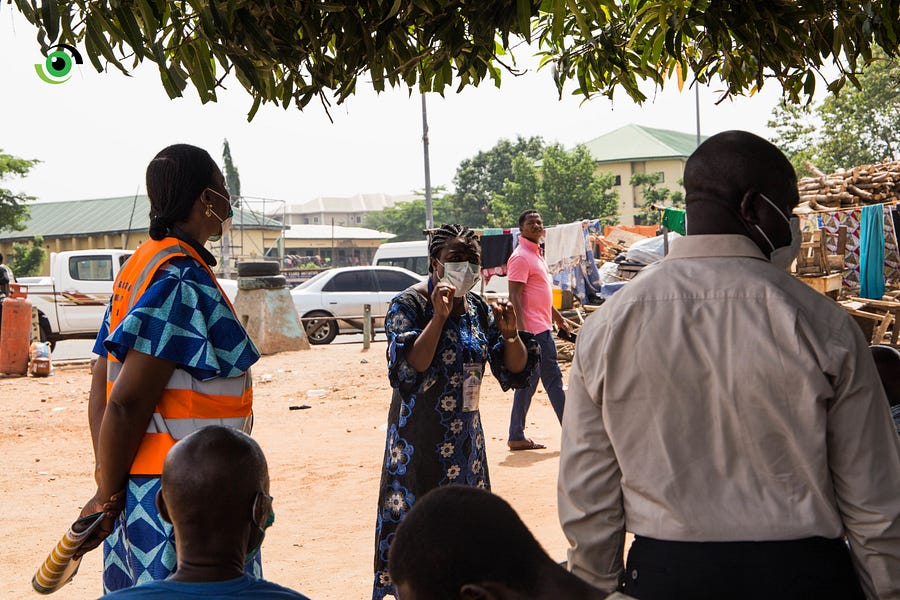
A health educator from the team educates members of the community on COVID-19 and safe practices while the testing team sets up. Mobilisation is one of the pillars of the FCT’s response and team members are responsible for community sensitisation.
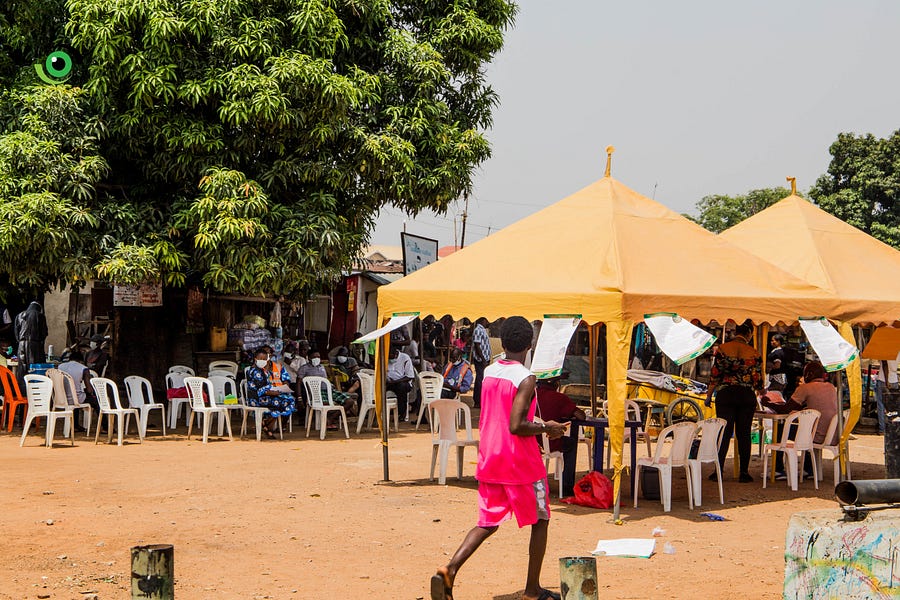
Seats for the testing waiting area are arranged in a way that adheres to physical distancing guidelines to ensure community members are not sitting close to each other.
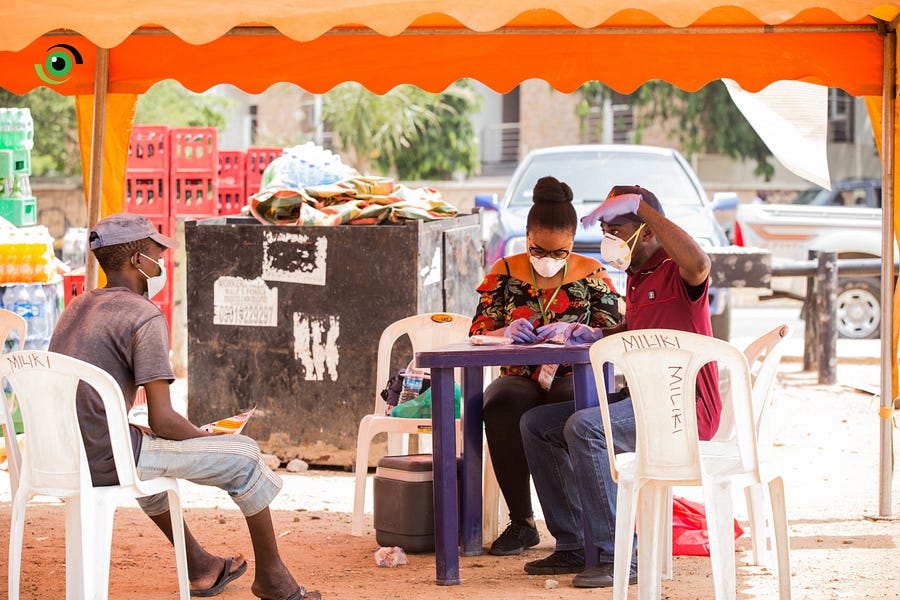
Community members are pre-screened during documentation to know if they have any respiratory illnesses before they are handed sample collection materials to proceed to the sample collection area.
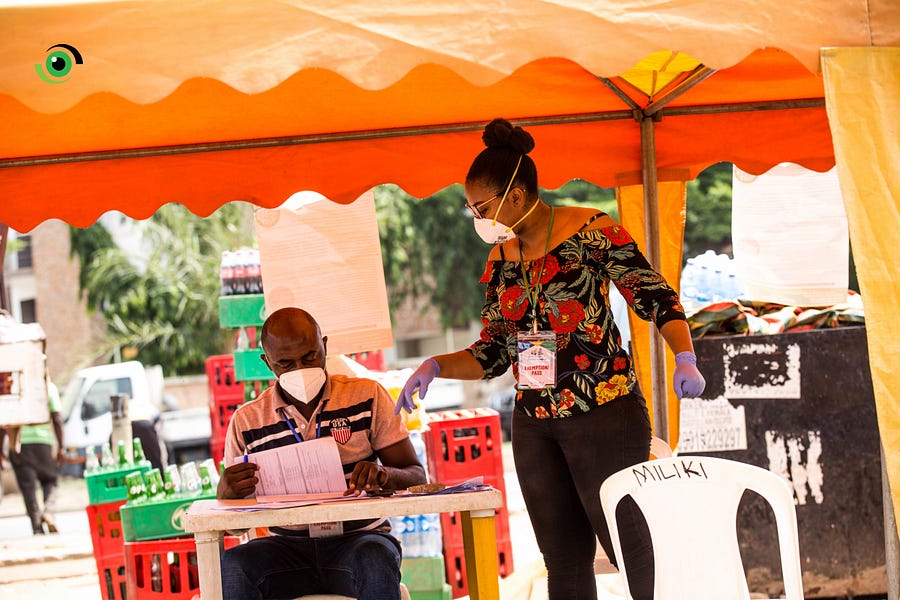
Volunteers make up a significant proportion of every testing team. The COVID-19 outbreak has shown the power of volunteerism at work in Nigeria. Some of the volunteers are health professionals working in private health facilities.

Physical distancing is maintained while documenting and pre-screening community members. Proper documentation is very important in the process in case there is a need to follow up if a test sample turns positive. The forms are carefully assigned identification numbers with other necessary information from the community members.
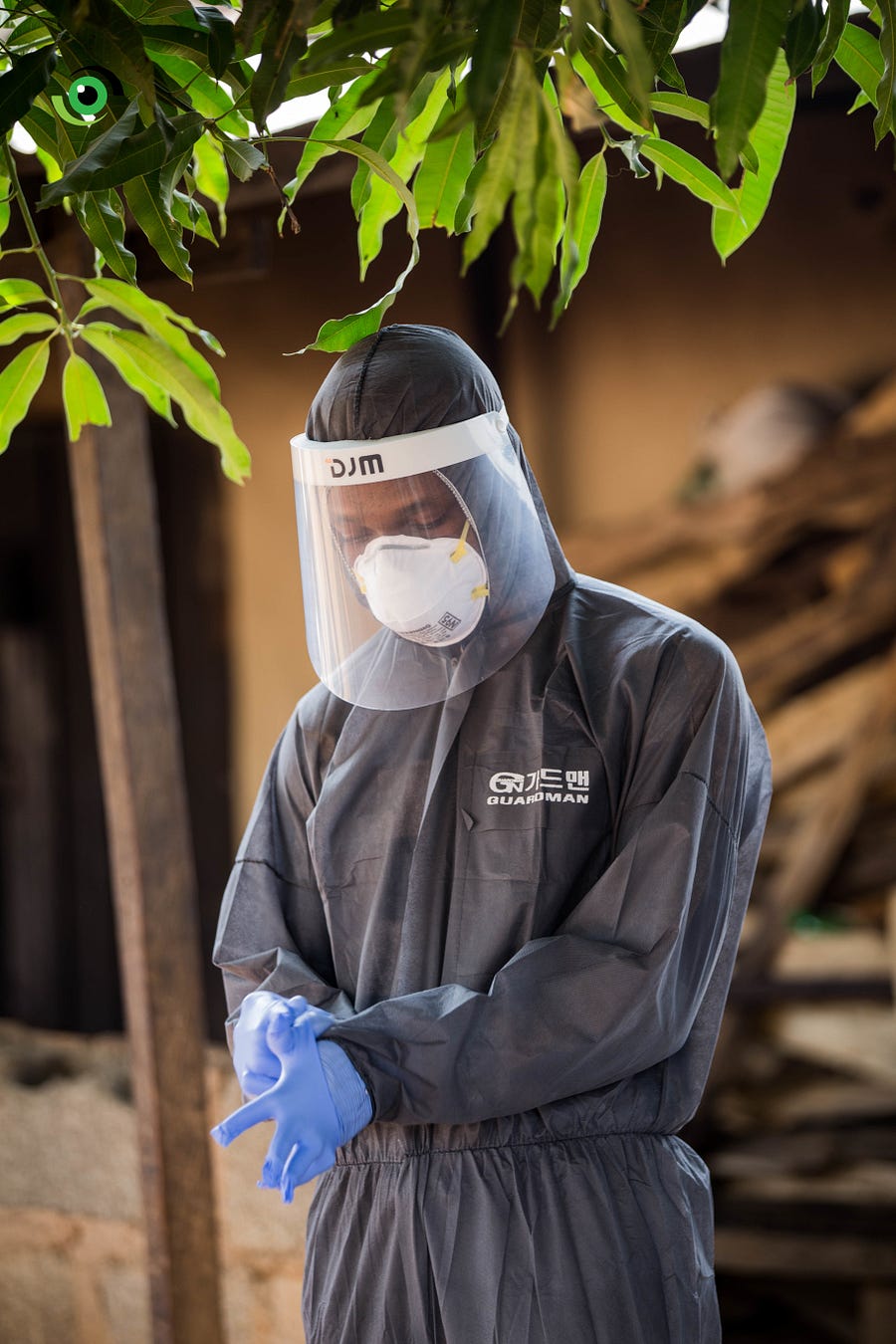
A health worker fully clothed in Personal Protective Equipment (PPE) sets up and waits in another corner of the testing site to collect samples from community members after their documentation and pre-screening.
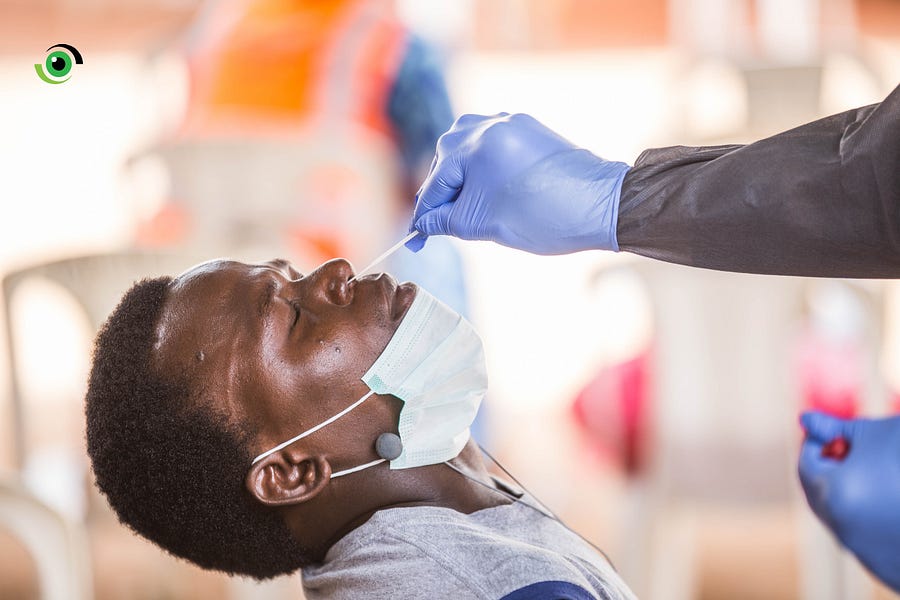
A nasal swab is carefully done collect samples for COVID 19 testing. The sample containers are already labelled at the documentation stage, so after collection, the health worker covers and places them in a sample collection tube for transportation to the NCDC National Reference Laboratory in Gaduwa. This helps minimise contact with the sample once collected.
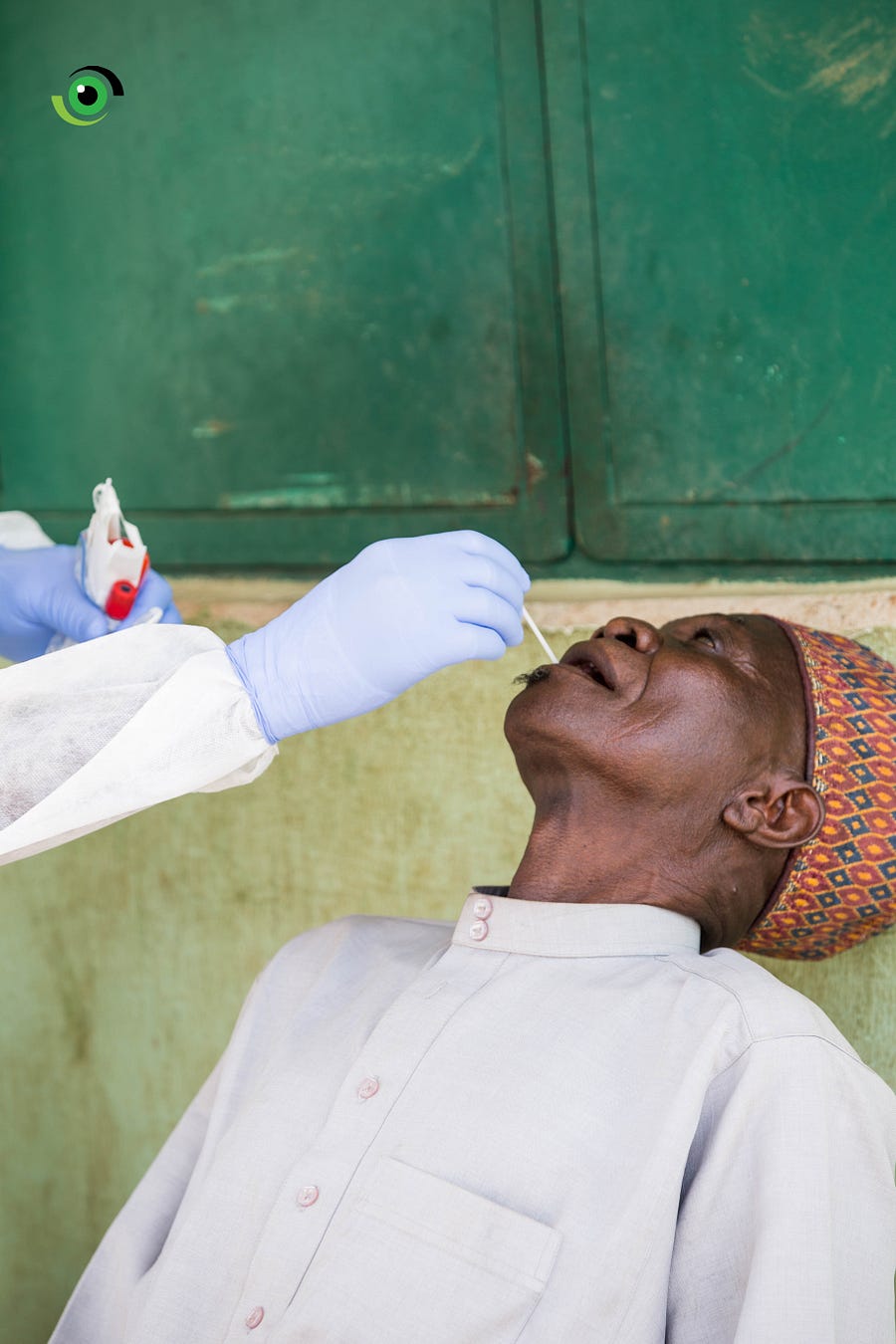
The community head of Mabushi village presents for a throat swab, which is another site for collecting samples for COVID-19 testing. Community heads like him support the community testing efforts and make it easy for the testing team to carry out their work.
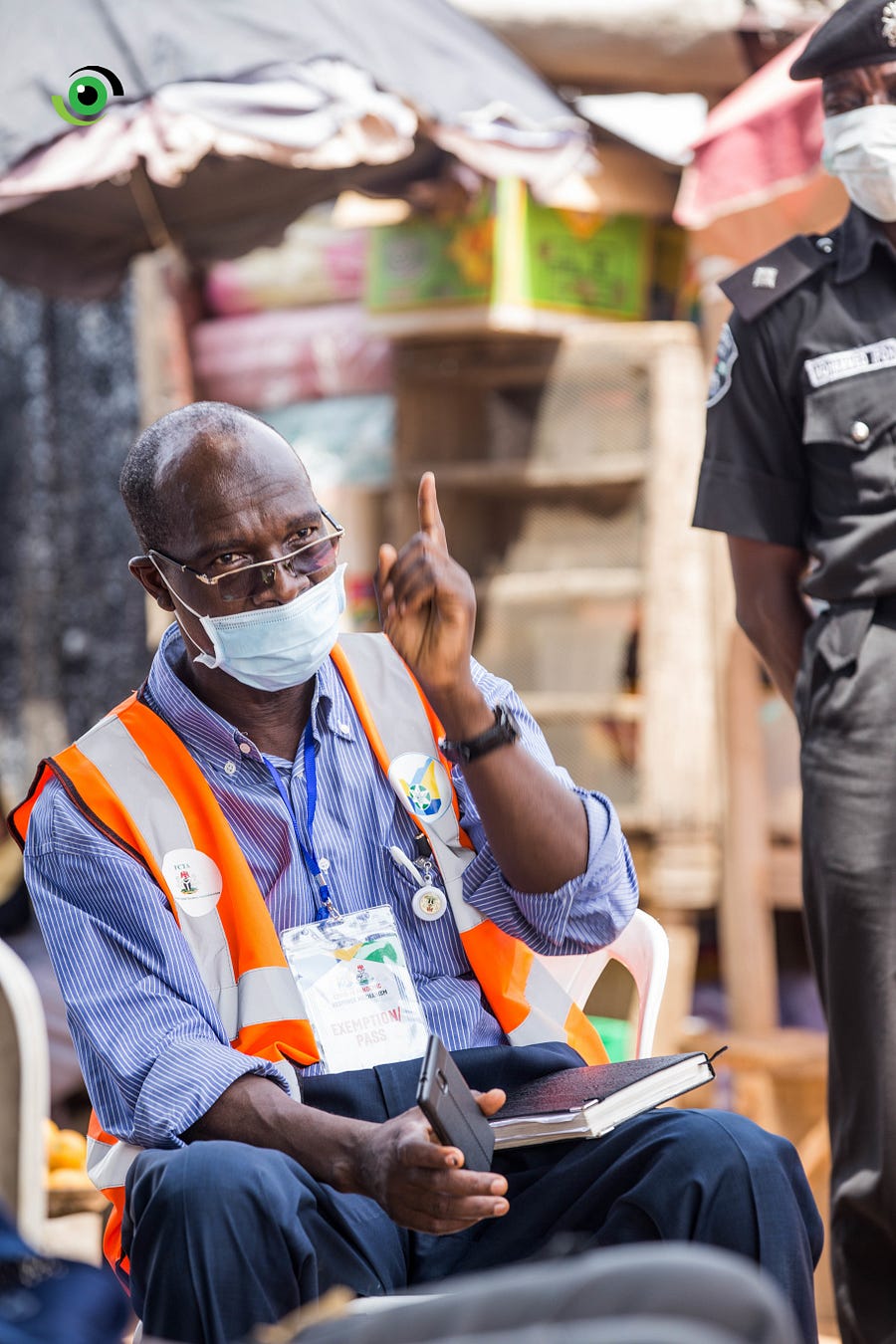
Dr Abdulraman Sadiq is a Deputy Director, Disease Control in the Department of Public Health, Health and Human Services Secretariat of FCTA. He heads the Research and Infection Prevention and Control (IPC) pillars of the FCT EOC. He said the cooperation of community leaders and other gatekeepers made it possible to access community members.
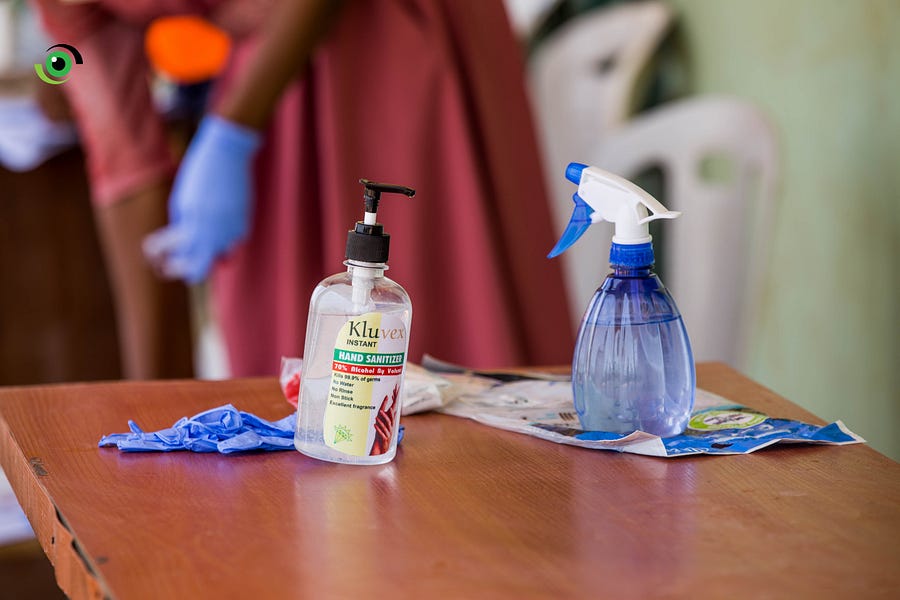
Alcohol-based hand sanitizers and disinfectants are made available at every sample collection and documentation desk to protect staff and community members.
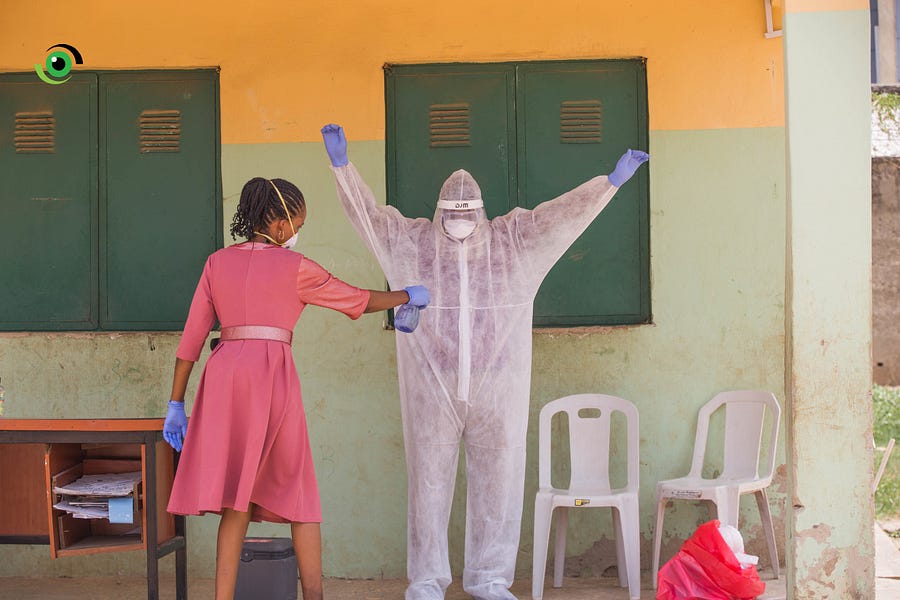
The team follows protocols for removing and discarding their PPEs when they complete sample collection.
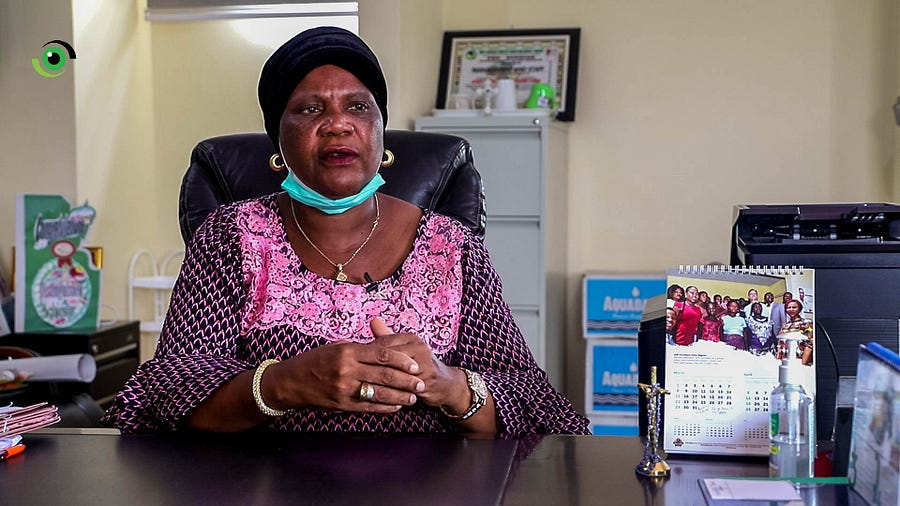
Dr Okechukwu said one of the challenges they face is resistance from some community members in some locations. She said they are violent in some cases because they are more interested in palliatives than getting tested for COVID-19. In these communities, their community leaders were also not helpful in reaching out to their members, she said.
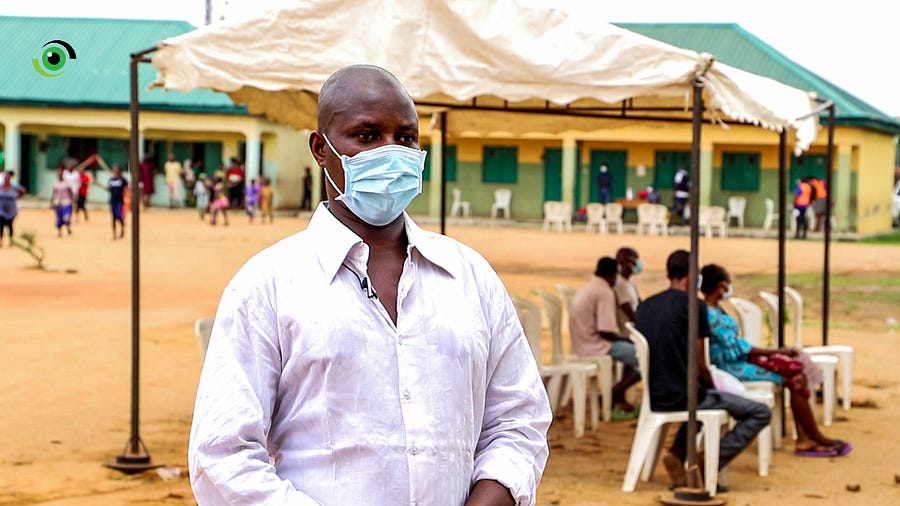
The major reason why Mabushi community members such as Mr Abdulrasheed Ahmad Ajao participated in the community testing exercise was to protect themselves and their loved ones from contracting COVID-19.


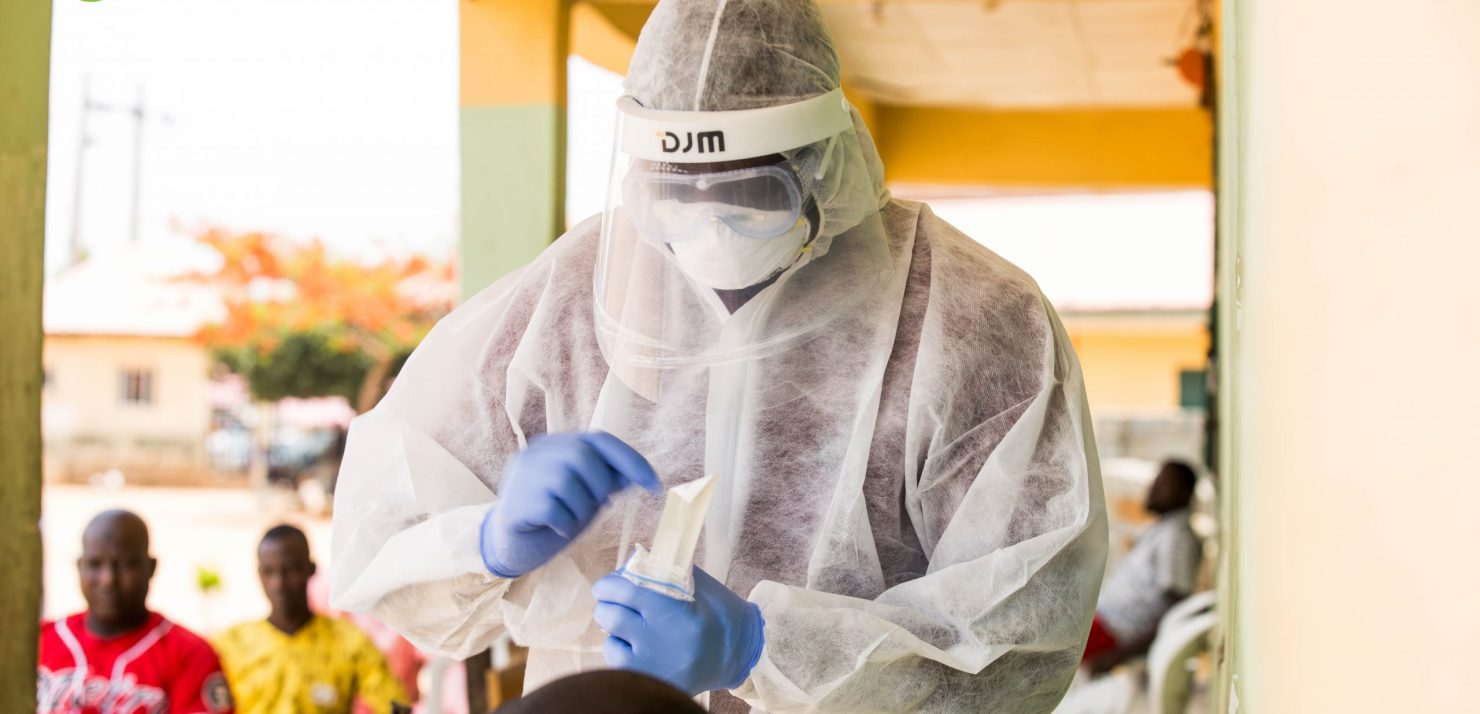
Thats a developement in the right direction but I think is too early to do community active case finding and testing as a way of increasing our testing capacity while Nigeria is still facing lack of testing kit to deal with those who have mild and acute infection talkless the asymptomatic. A questionaire based case active search may be necessary ,while those with mild and acute infection should be getting every attention at this point. The administration of questionaire is cheap and will yield a better outcome as against what is on ground now so that people will not also see it as a political rally. If we use Germany as a case study they were very proactive in the sense that as soon as the index case was identified, both those with mild infection and severely ill were tested while the asymptomatic were not tested and that drastically reduced the rate of spread and death . On the contrary Uk started testing only the severely ill and left out those with mild infection and asyptomatic and that led to increase in the rate of spread and death (according to iceberg model analysis). Lession learnt in both Germany and Uk strategies is while testing of those with mild and acute infection is on going a questionaire based case finding should also run concurrently to identify particulary the asymptomatic patients within the communities . This will curtail the spread of covid-19 to a reasonable extent.